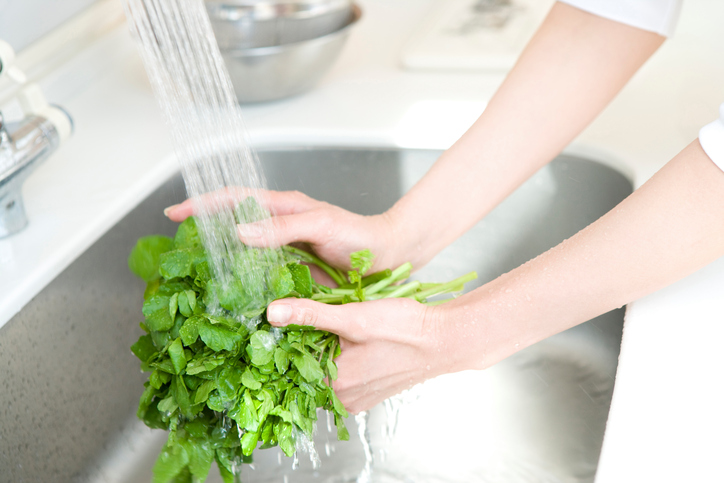
Listeriosis is a bacterial infection that can be contracted when an individual consumes contaminated food or water. Every year, about 134 cases of invasive listeriosis are reported in Canada. It’s extremely important that food safety professionals help prevent the spread of listeria, as one contaminated food manufacturing plant could cause an outbreak across a province or even the entire country. As you’ll soon learn in your food safety program, there are many ways that you can work to prevent a listeriosis outbreak.
Get a head start on your training by reading about some key facts on listeriosis.
1. Listeria Bacteria Can Be Found in Food and Water
Preventing a listeriosis outbreak is extremely important. For this reason, food safety professionals should know where listeria bacteria—which cause listeriosis—originate and how they can find their way into food and water.
Listeria bacteria are found in natural environments when waste from infected animals enters a water supply. This means the most common places that listeria bacteria can be found are in soil, plants, and untreated water. Listeria can be passed onto foods like meat, seafood, fish, and fruits and vegetables, as well as some dairy products like unpasteurized milk and soft cheese. In addition, listeria may be spread in food processing facilities if the plant is cleaned using contaminated water or if any ingredients are contaminated.
2. Students in Food Handling Courses Should Know the Spread of Listeria Can Be Prevented
Today, because of the diligent efforts of professionals who have graduated from a food handling course, listeria outbreaks are less common than in the past. Once you begin your career, you can help prevent the spread of listeriosis by ensuring that fruits and vegetables are washed thoroughly with clean water. In addition, if you’re working in a kitchen environment, always make sure that raw vegetables are cooked thoroughly. This will help kill any harmful listeria bacteria that could make someone sick.

Thoroughly washing vegetables can help prevent the spread of listeria bacteria
3. Certain Individuals Are More at Risk of Contracting Listeriosis
Not everybody who comes into contact with listeria bacteria will become sick. However, certain individuals are more at risk of contracting listeriosis than others. Individuals with weakened immune systems, like those who may be on an immunosuppressant drug, have a higher risk of getting the infection. In addition, adults who are aged 60 or older and pregnant women are both at a higher risk of contracting listeriosis. In fact, pregnant women are more likely to contract listerosis than other people by a factor of 10. Individuals who are at a higher risk of contracting the infection should be extra cautious with raw milk, ready-to-eat meats, soft cheeses, and smoked fish.

At-risk individuals like pregnant women should avoid foods potentially contaminated with listeria
4. Grads of Food Handling Courses Might Know the Symptoms of Listeriosis
Listeriosis will affect each individual differently. Some people report symptoms just three days after eating contaminated food, while others’ symptoms may not appear for up to 70 days. Early symptoms of a possible infection include fever, nausea, vomiting, and a headache, while more advanced symptoms include a stiff neck, off-kilter balance, and confusion. Listeriosis, like most other infections, is treated with an antibiotic.
By understanding the risks of listeriosis, the symptoms, and how to prevent the spread of listeria, you can help make sure that people in Canada and around the world consume healthy food that won’t make them sick.
Do you want to earn your food handler certificate in Toronto?
Contact AAPS today to learn more!



